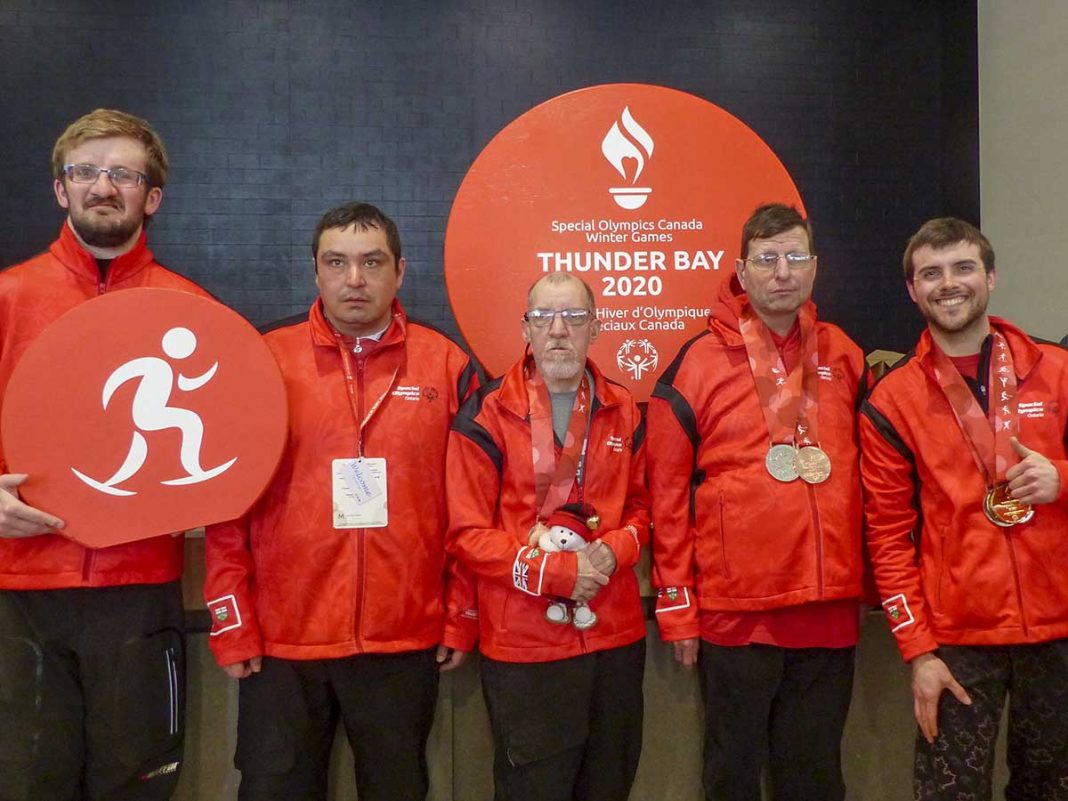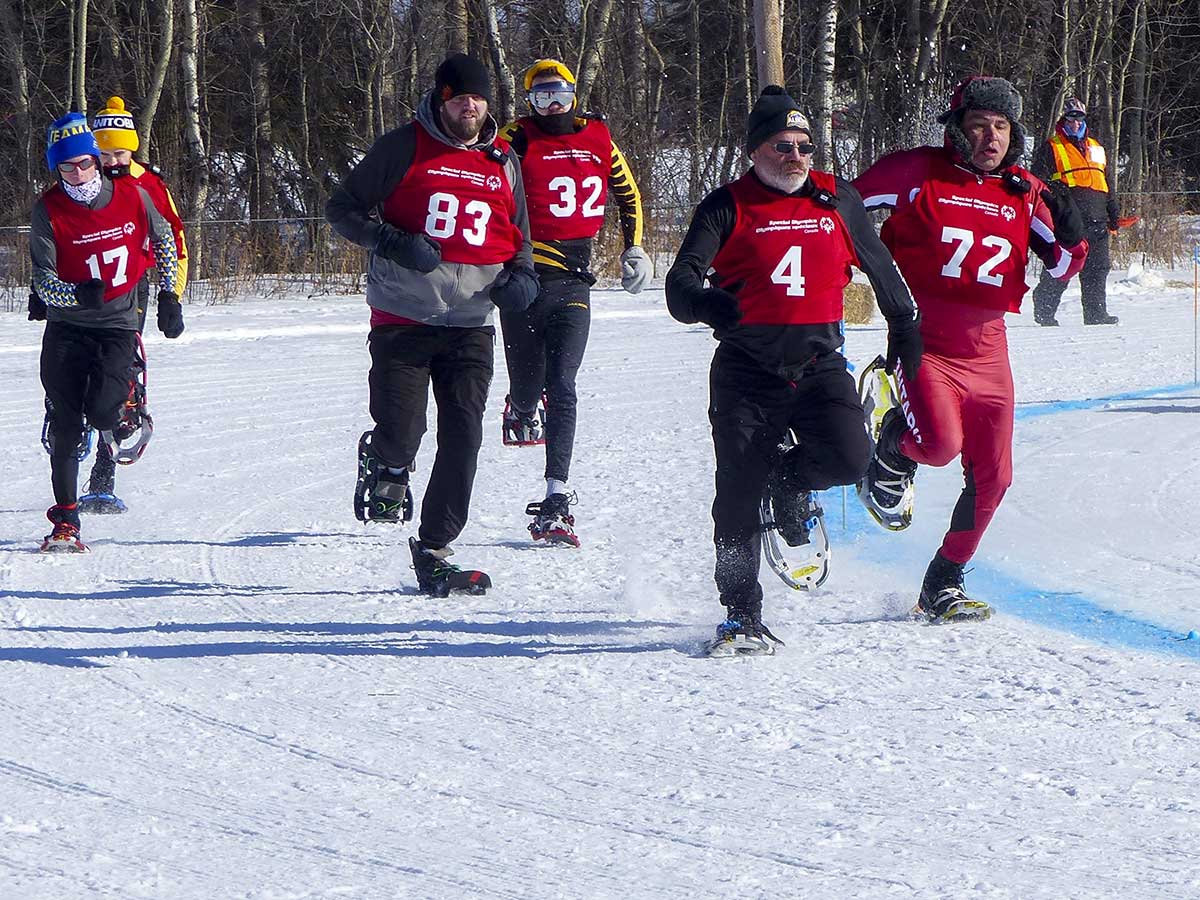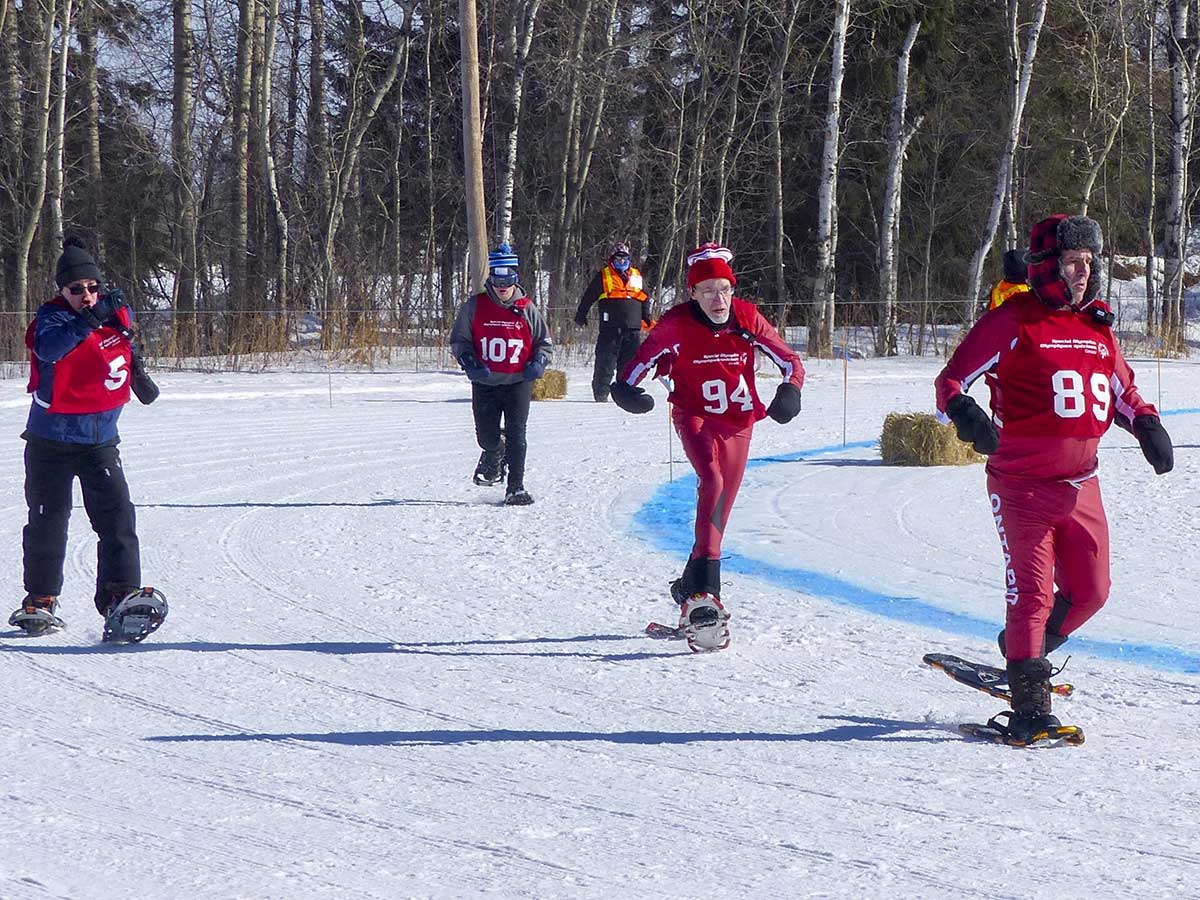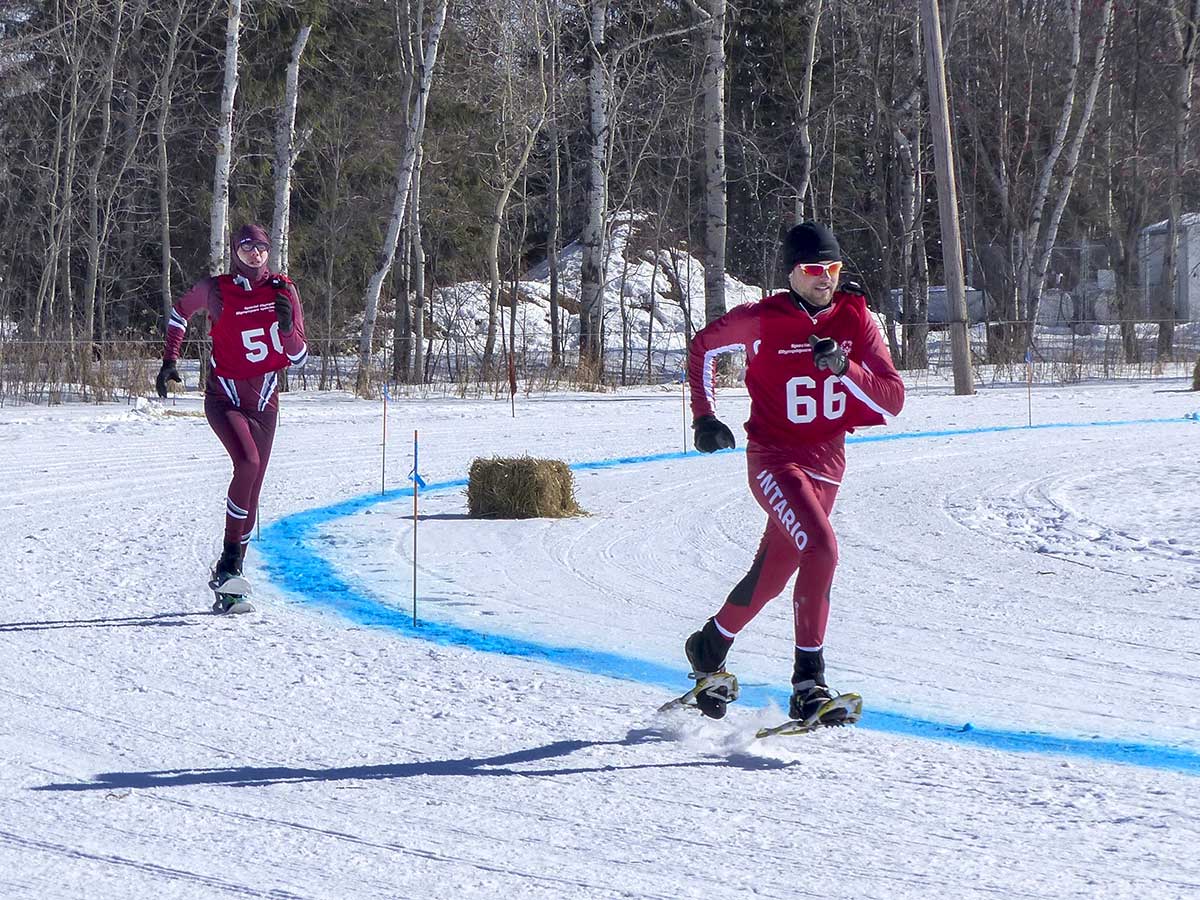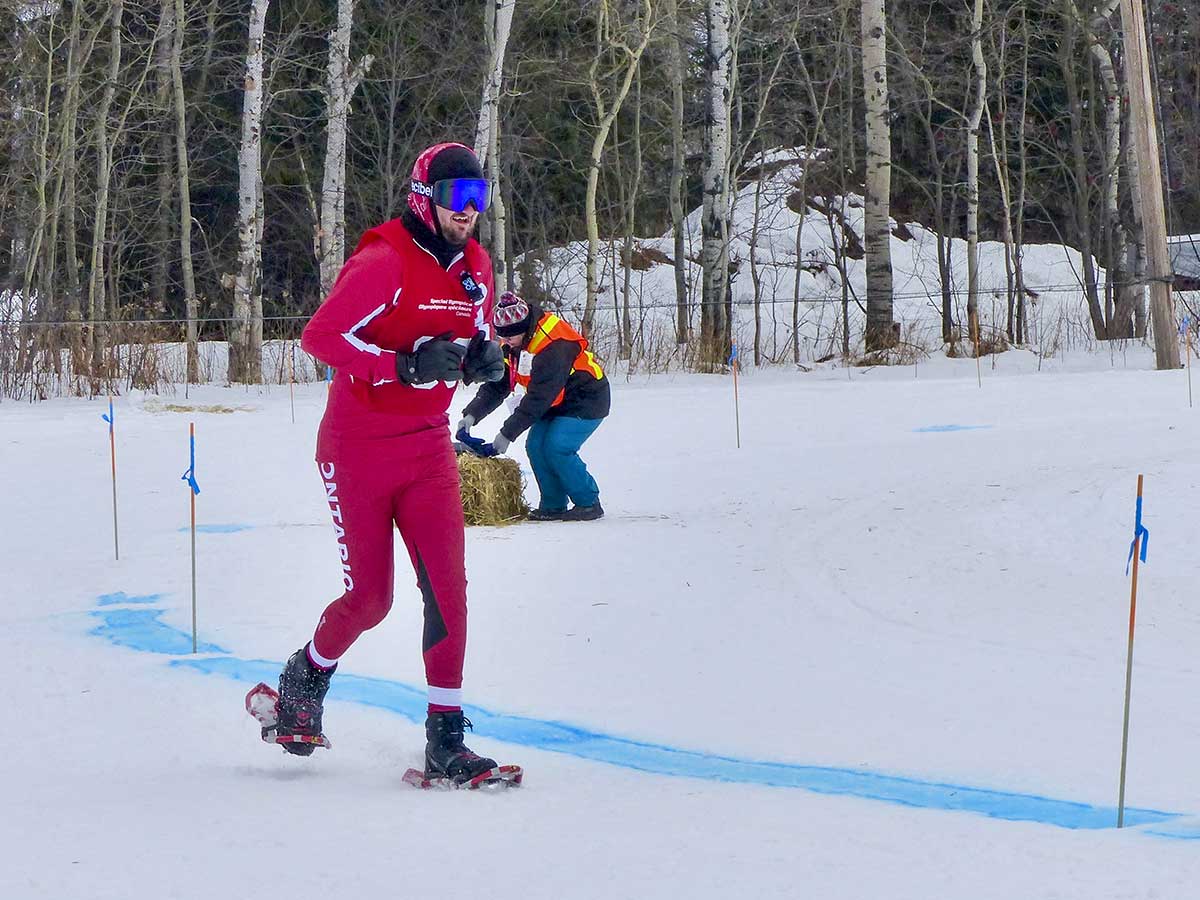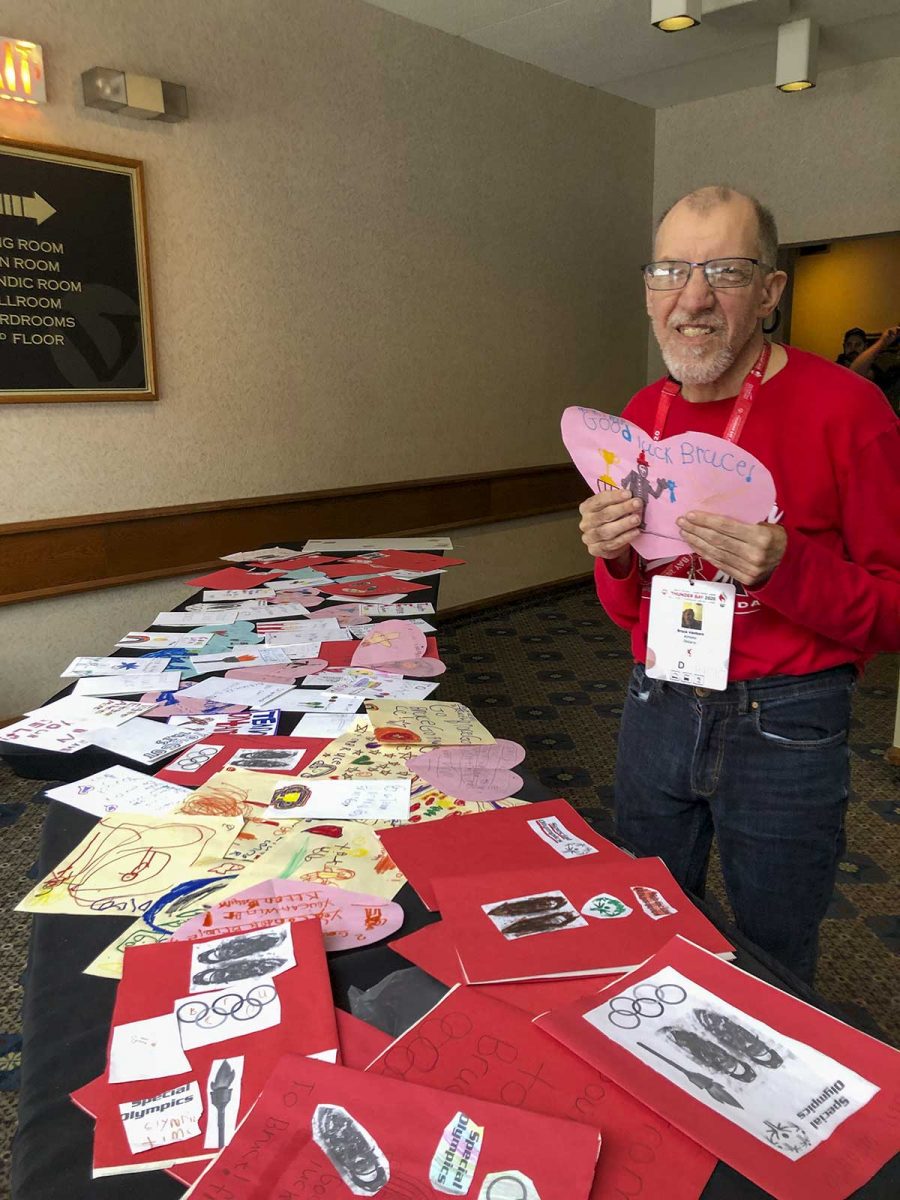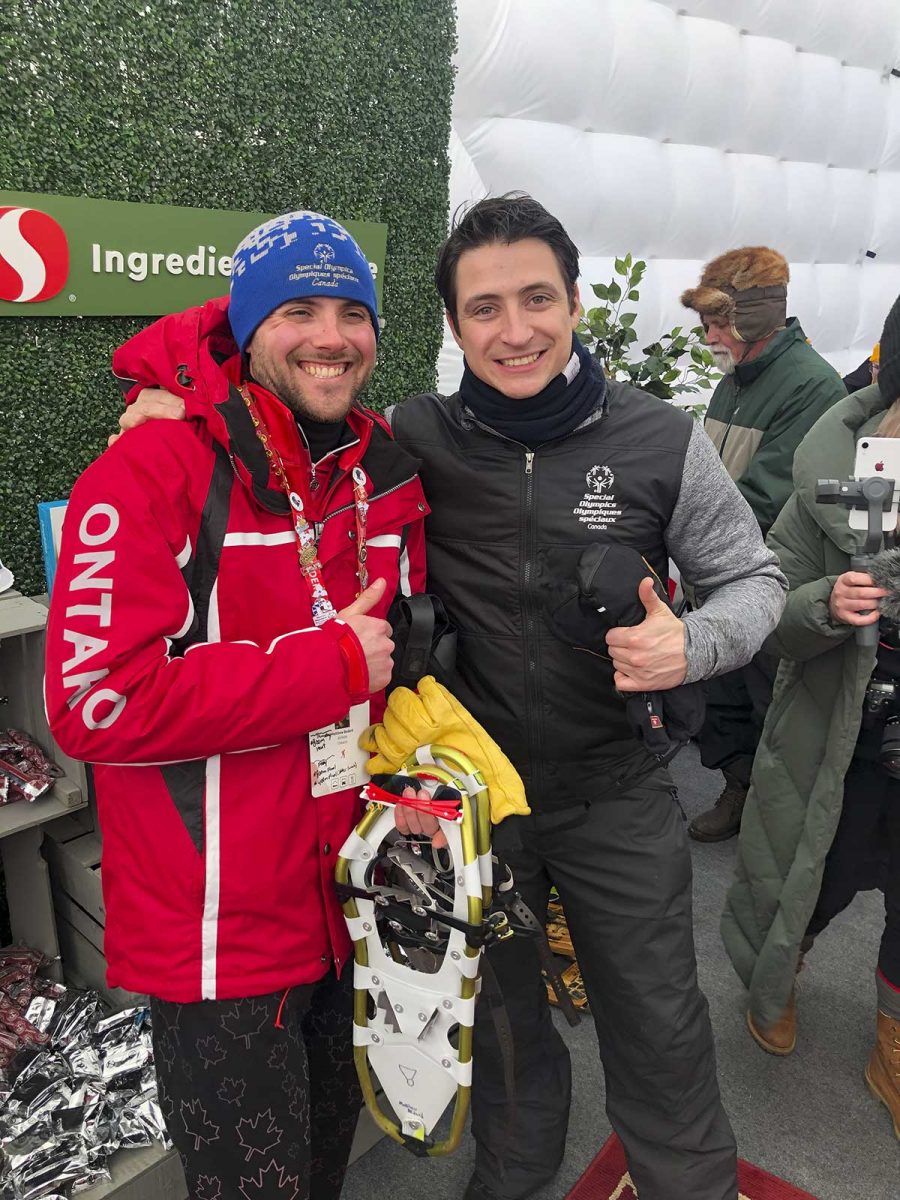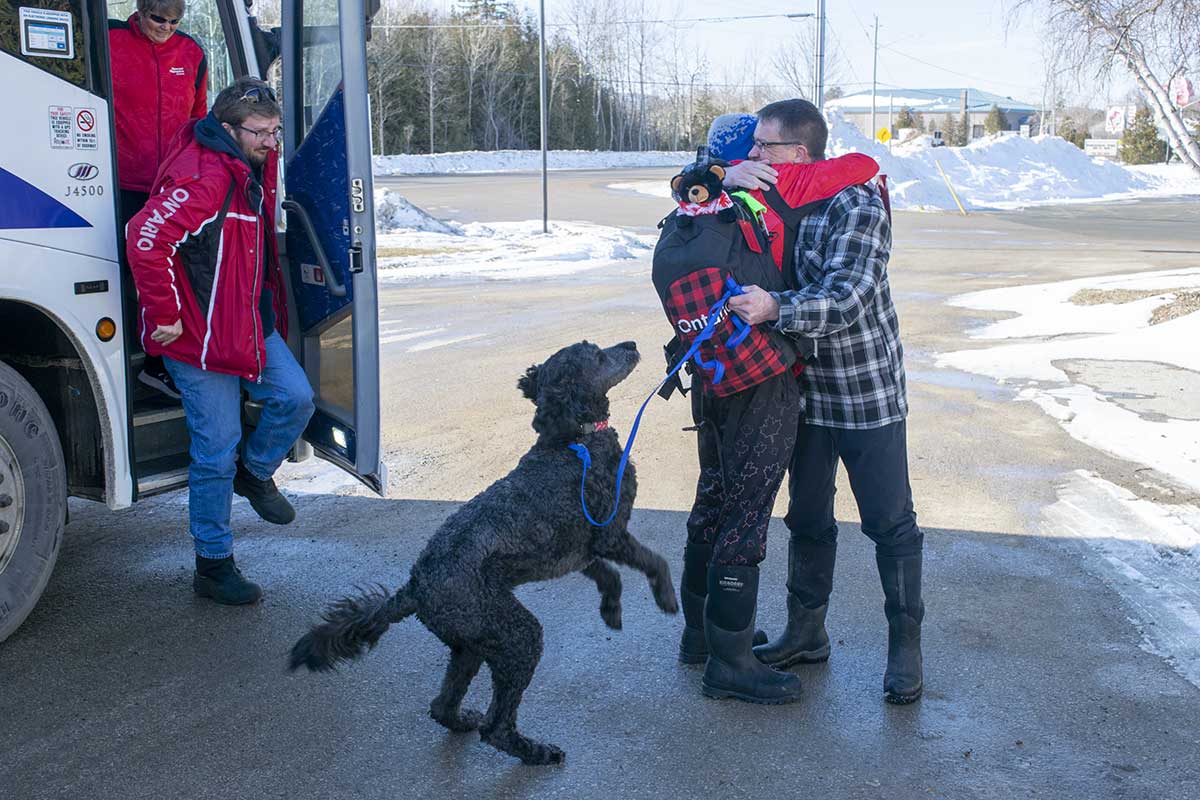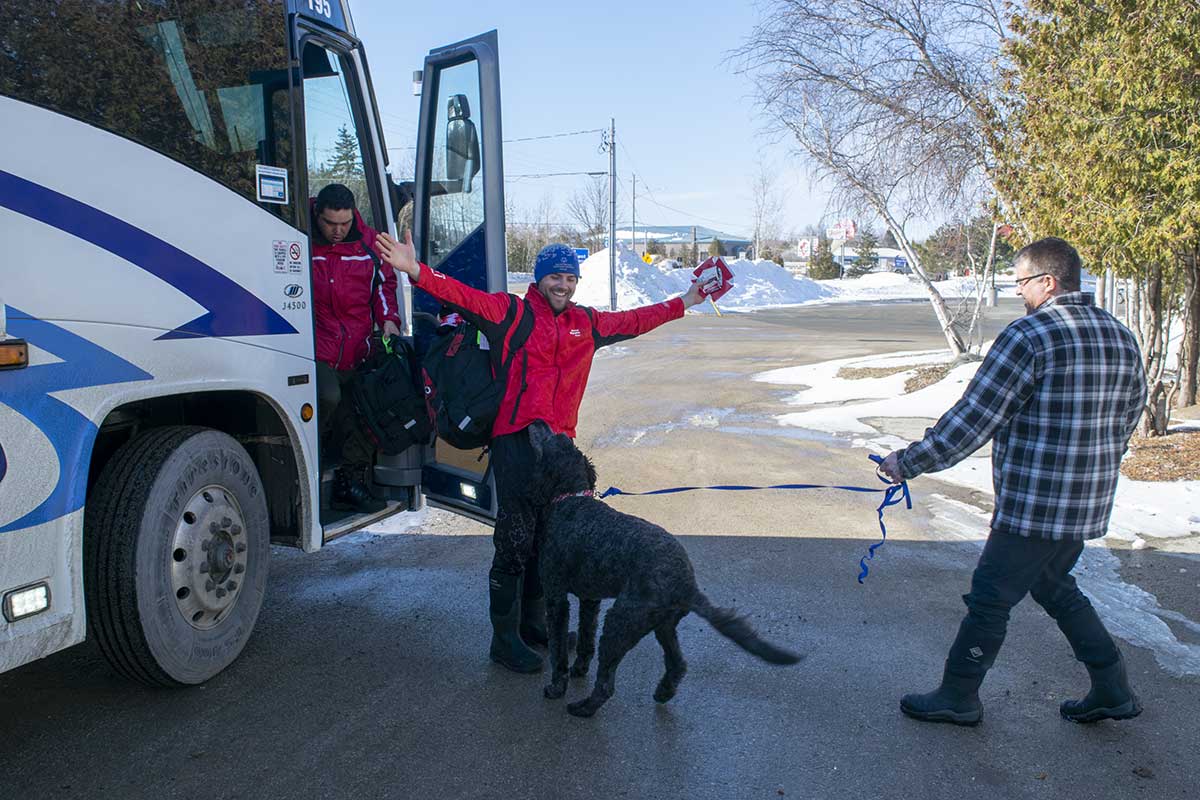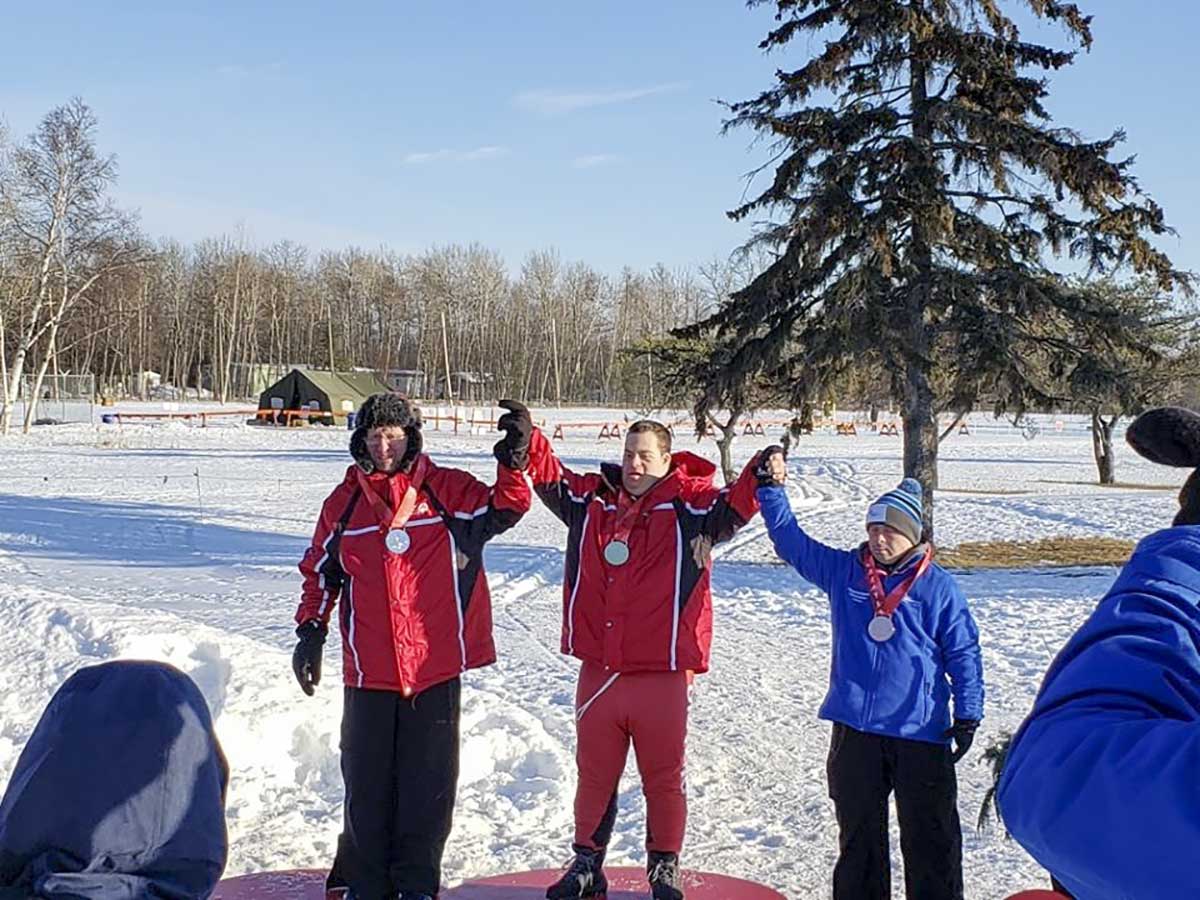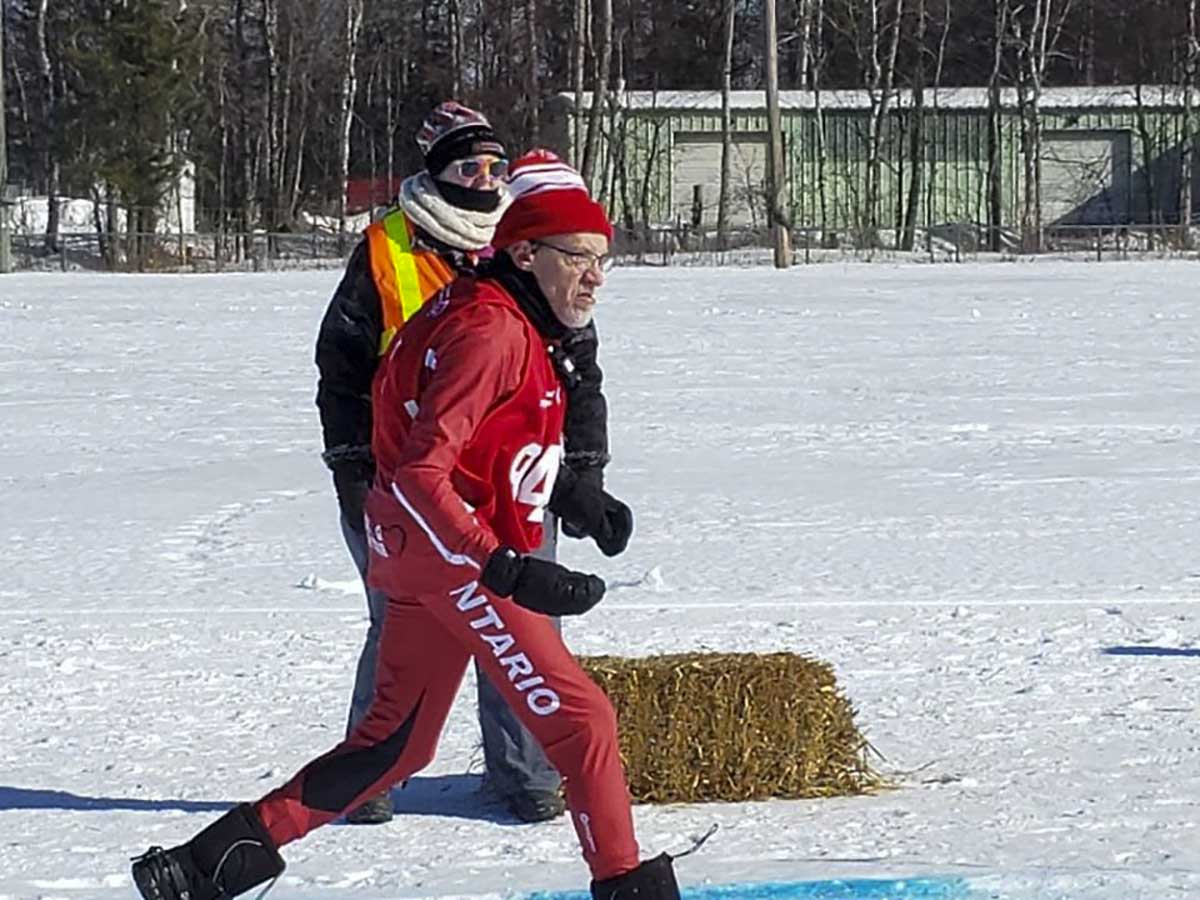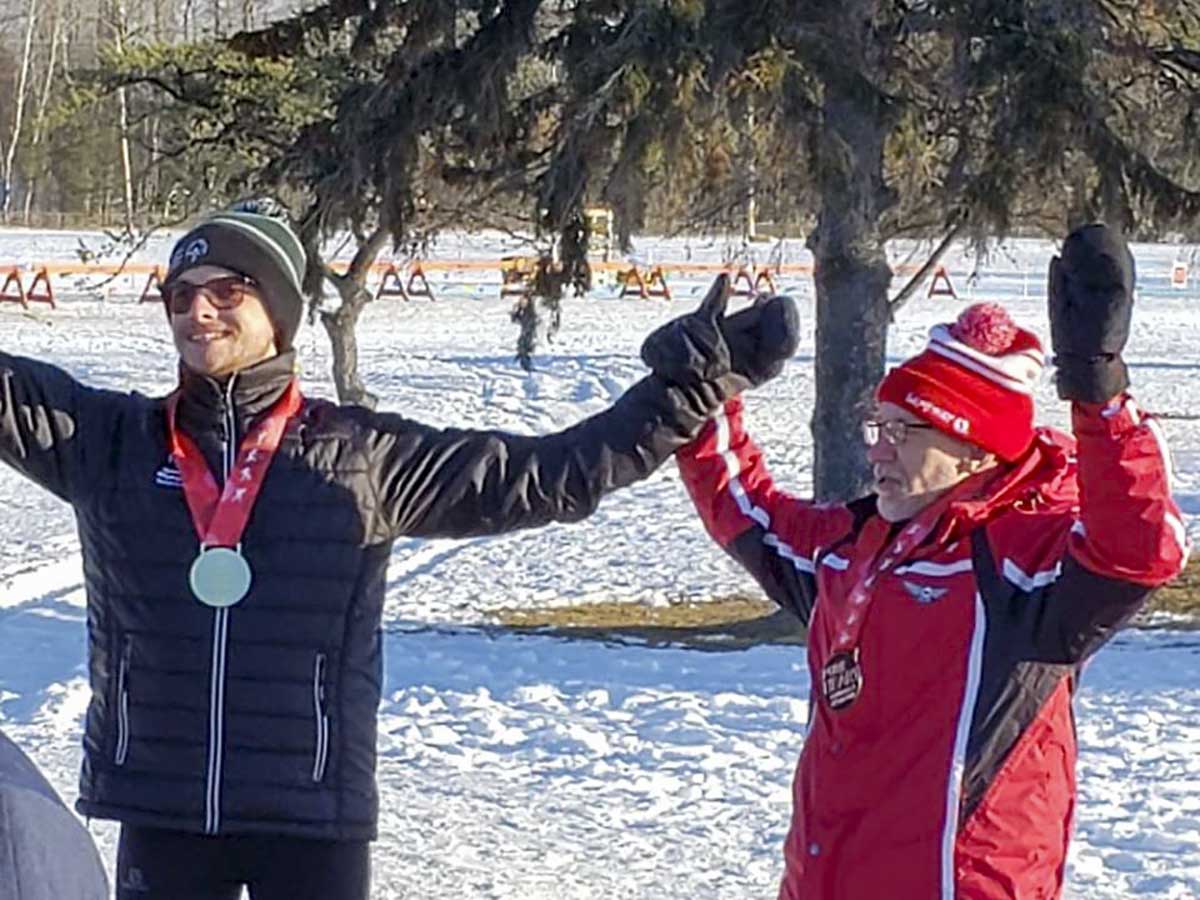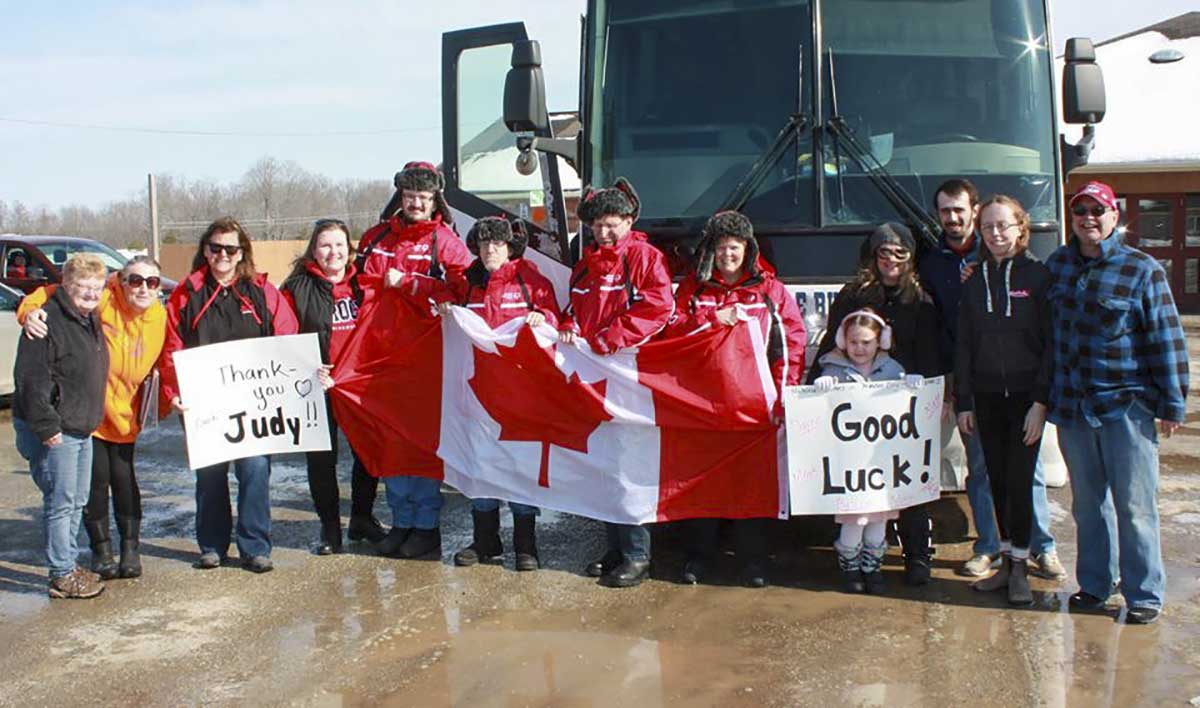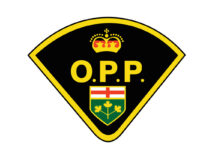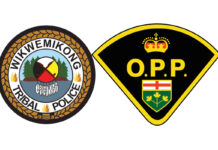THUNDER BAY – Manitoulin Special Olympians did very well at this year’s national winter games held this past week in Thunder Bay, bringing home a combined slate of six medals between the five athletes in the snowshoe competition.
“Overall, they all did pretty well and they all pretty well had personal best times. That’s all I ask as a coach, is that they try their best, work hard and improve their times from last year. But just to be at the national games is impressive,” said coach Judy Olacke, who went with the athletes as part of the contingent from Special Olympics Ontario.
“It’s really great for the Island to have five athletes represented out of the 33 snowshoers on Team Ontario; that’s an impressive amount coming from a place like this,” she said. Ms. Olacke has been with Manitoulin Special Olympics for about 15 years.
The team posted excellent results from the snowshoe races in their respective lengths. Mark Dokum placed sixth in the 100-metre race with a time of 19.60 seconds. He scored fourth in the 200-metre race in a time of 42.80 seconds.
Dayne Tipper placed fourth in both the 400- and 800-metre races, with times of 2:51.10 and 6:01.70 respectively. Both of those times were personal bests.
Bruce Vanhorn ranked fifth in the 100-metre race in a time of 31.70 seconds and he earned the bronze medal in the 200-metre race with a time of 1:05.80, a new personal best time for him.
Norm Daoust ranked third in the 100-metre race with a time of 43.40 seconds, good for the bronze, and he brought home a silver in the 200-metre race with a time of 1:47.10.
Finally, Matt Bedard earned a personal best time in all three of his races. He ran the 800-metre race in 2:59.90, a silver medal performance; the 400-metre in 1:16.80, also good for a silver, and he ran the five-kilometre race in 22:29.70, a gold medal performance that shattered his previous best time.
“I was actually surprised at how well I’ve done. I went from 29 minutes down to 22,” said Mr. Bedard as he stepped off the team bus in Little Current this past Monday, getting a warm reception from his dad and his dog.
The competition has shifted away from being age-based in favour of an abilities level competition, so challengers are placed in heats based on their times from the previous year’s event.
There were a few memorable moments beyond the main competition. Mr. Vanhorn was adopted by Thunder Bay’s Westmount Public School over the past year, which entailed the school fundraising to help him attend the games.
During the competition, he was invited to visit a class at the school but, as it turned out, he got more of a hero’s welcome than he had been anticipating.
“We were walking outside and the media person from Special Olympics said I should maybe have my cell phone out for a photo. We walked through the front door and the entire school was there; there was kids lined up on both sides of the hallway down the hall and around the corner, cheering him on and giving him high fives as he walked through,” said Ms. Olacke.
The school did some research on Mr. Vanhorn’s likes and interests (with the help of employee Sara Umakoshi, who previously lived on Manitoulin) and gave him a school t-shirt, hat, lanyard and backpack, chocolate treats, a Tim’s card and a travel coffee mug. He also went home with a pile of well-wishing cards.
Although Mr. Vanhorn received the star’s welcome, Mr. Bedard got to work closely with a well-known athletic celebrity, Canadian Olympic ice dancer Scott Moir.
“Matthew taught Scott some snowshoe skills and strategy, and then Scott raced the other celebrities—Olympic swimmer Mark Tewksbury, Conservative leadership hopeful Peter MacKay and a Sobeys/Safeway representative—alongside their paired Special Olympians,” Ms. Olacke said.
At the end of the event, Team Ontario took 52 of the available 82 snowshoe medals outside of the relay events. Team Ontario and Team Saskatchewan completely took over the Valhalla Inn, Thunder Bay’s biggest hotel, which was turned into a de facto Olympic Athletes Village.
“Being there was a great opportunity, with the team and the coach, it was wonderful. It was nice to be there, nice to be up in Thunder Bay,” said Mr. Bedard.
This year’s event drew 1,200 athletes, coaches, managers and mission staff, 60 technical officials and 500 volunteers. The eight games as part of the national event were alpine skiing, five-pin bowling, cross-country skiing, curling, figure skating, floor hockey, snowshoeing and speed skating.

